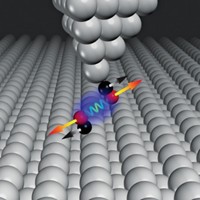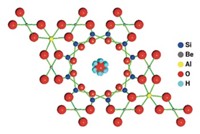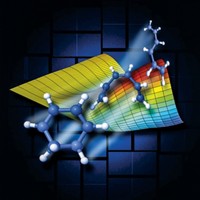Advertisement
Grab your lab coat. Let's get started
Welcome!
Welcome!
Create an account below to get 6 C&EN articles per month, receive newsletters and more - all free.
It seems this is your first time logging in online. Please enter the following information to continue.
As an ACS member you automatically get access to this site. All we need is few more details to create your reading experience.
Not you? Sign in with a different account.
Not you? Sign in with a different account.
ERROR 1
ERROR 1
ERROR 2
ERROR 2
ERROR 2
ERROR 2
ERROR 2
Password and Confirm password must match.
If you have an ACS member number, please enter it here so we can link this account to your membership. (optional)
ERROR 2
ACS values your privacy. By submitting your information, you are gaining access to C&EN and subscribing to our weekly newsletter. We use the information you provide to make your reading experience better, and we will never sell your data to third party members.
Synthesis
Double hydrogen bond rearrangement identified in water cluster
Concerted rotation of water molecules reorganizes hydrogen bond network
by Jyllian Kemsley
March 28, 2016
| A version of this story appeared in
Volume 94, Issue 13
Water’s hydrogen bond network plays a critical role in many processes, including ion dissolution, polar reagent chemistry, and protein folding. Understanding how that network fluctuates is necessary for understanding how water-influenced processes work. Previous research has shown that frozen water molecules can rearrange by rotating without breaking any hydrogen bonds or by bifurcating, in which a water molecule rotates such that a hydrogen bond to one of its hydrogens is replaced by a hydrogen bond to the other. A pair of water molecules in a cluster may also break and form two new hydrogen bonds through a tunneling mechanism in which the two molecules simultaneously rotate, according to new work by a team led by Jeremy O. Richardson of Durham University, Brooks H. Pate of the University of Virginia, and Stuart C. Althorpe and David J. Wales of the University of Cambridge (Science 2016, DOI: 10.1126/science.aae0012). The scientists studied the tunneling rearrangement in an (H2O)6 prism by using microwave spectroscopy and quantum mechanical modeling. Water in cellular or other confined environments may rearrange similarly.






Join the conversation
Contact the reporter
Submit a Letter to the Editor for publication
Engage with us on Twitter